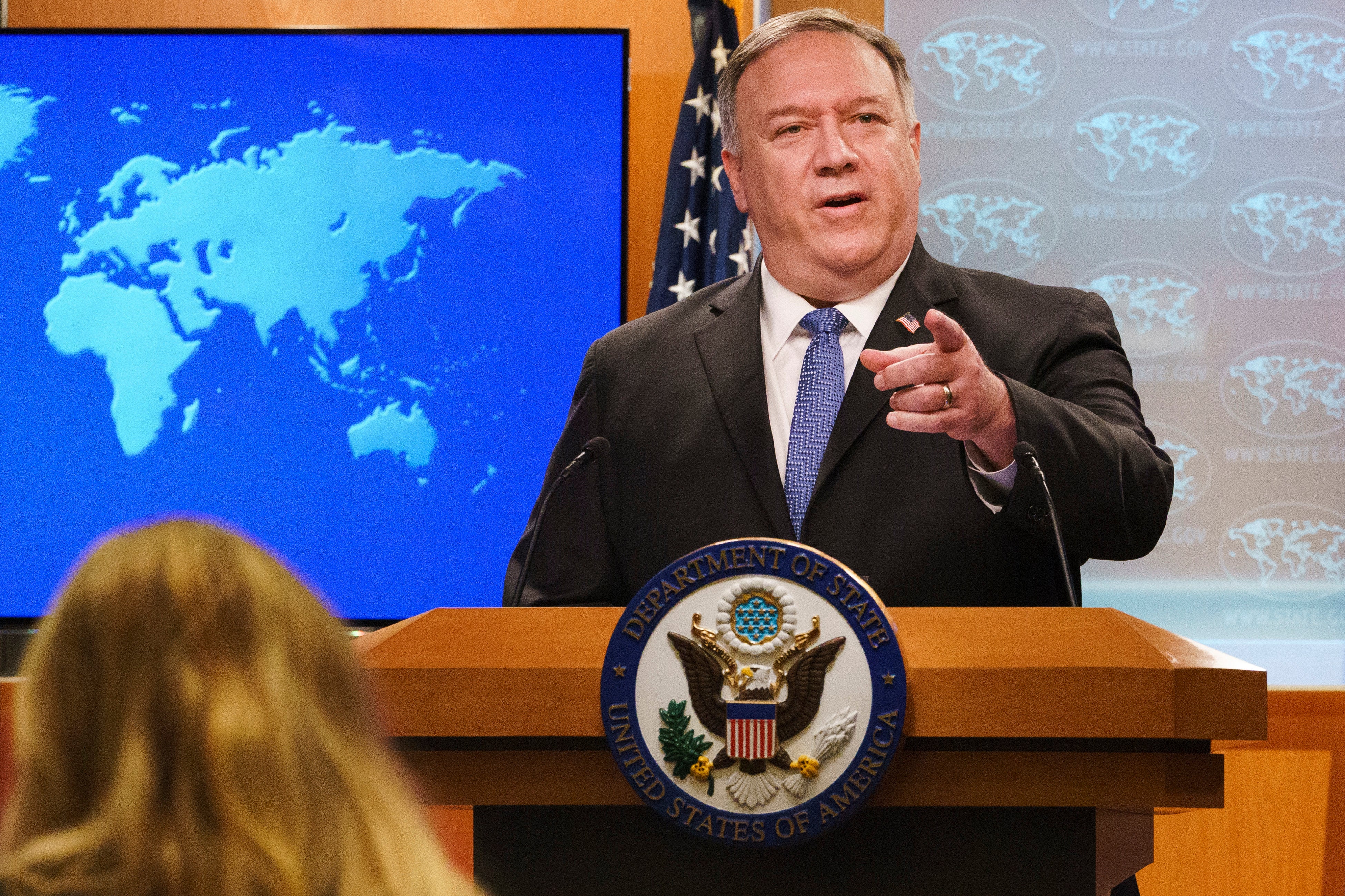EXPLAINER: Why US accused China of genocide and what's next
The U.S. secretary of state's accusation of genocide against China touches on a hot-button human rights issue between China and the West

The U.S. secretary of state's accusation of genocide against China touches on a hot-button human rights issue between China and the West.
In one of his final acts in office, Secretary of State Mike Pompeo declared Tuesday that China’s policies against Muslims in its Xinjiang region constitute “crimes against humanity” and “genocide.”
Earlier the same day, British lawmakers narrowly rejected a proposal aimed at China that would have barred trade deals with any country deemed to be committing genocide.
Xinjiang, a far western region that borders central Asia, is home to the predominantly Muslim Uighur ethnic group. China denies human rights violations and says its actions in Xinjiang are necessary to counter a separatist and terrorist threat.
___
WHY IS CHINA ACCUSED OF GENOCIDE?
Pompeo cited forced birth control among Uighurs, which an Associated Press investigation documented last year, and forced labor which has been linked by AP reporting to products imported to the U.S., including clothing, cameras and computer monitors.
“I believe this genocide is ongoing, and that we are witnessing the systematic attempt to destroy Uyghurs by the Chinese party-state,” Pompeo said in a written statement, using an alternative spelling for Uighurs.
___
WHAT IS CHINA'S RESPONSE?
China strongly defends its human rights record and policies in Xinjiang, saying its constitution and laws treat all citizens equally. It denies imposing coercive birth control measures or forced labor, saying those behind the allegations are lying in an effort to smear China’s reputation and impede its development.
Xu Guixiang, a deputy spokesperson for the Xinjiang branch of the ruling Communist Party, told reporters last week that birth control decisions were made of the person’s own free will and that “no organization or individual can interfere.”
___
WHAT HAPPENS NEXT?
Pompeo’s genocide designation does not trigger any immediate repercussions, but requires the U.S. to take it into account in formulating policy toward China.
It puts pressure on incoming President Joe Biden to maintain a tough line against China. He and members of his national security team have expressed support for such a designation in the past.
Antony Blinken, Biden’s choice to be secretary of state, said Tuesday that the Trump administration was right to take a tougher stance on China, but that it had approached the matter poorly by alienating U.S. allies and not fully standing up for human rights elsewhere.
___
HOW WILL CHINA RESPOND?
China may wish to avoid an early skirmish with the Biden administration, saving its invective for Pompeo and calibrating its response based on the possibility of a lowering of tensions that have flared under Trump.
As with most sensitive issues, it has heavily restricted foreign media access to Xinjiang and sought to limit any domestic discussion to official pronouncements.
Still, the “parting shot" from the Trump administration will likely further stress the relationship in the near term, said Shi Yinhong, a professor of international relations at Renmin University of China. He said the already slim chances of reducing China-U.S. tensions have been further limited in the coming weeks and months.
___
WHAT HAPPENED IN LONDON?
Lawmakers rejected by a 319-308 vote an amendment to a post-Brexit trade bill that would have forced the British government to revoke bilateral trade agreements with a country if the High Court of England found that it had perpetrated genocide.
Foreign Secretary Dominic Raab last week called the amendment “well-meaning” but ineffective and counter productive.
A significant number of rebel Conservatives backed the proposal, as did Jewish, Muslim and Christian community leaders. Prime Minister Boris Johnson is expected to continue facing vocal calls within his Conservative party for a stronger and more coherent policy on China over its alleged rights abuses and violations of international norms.